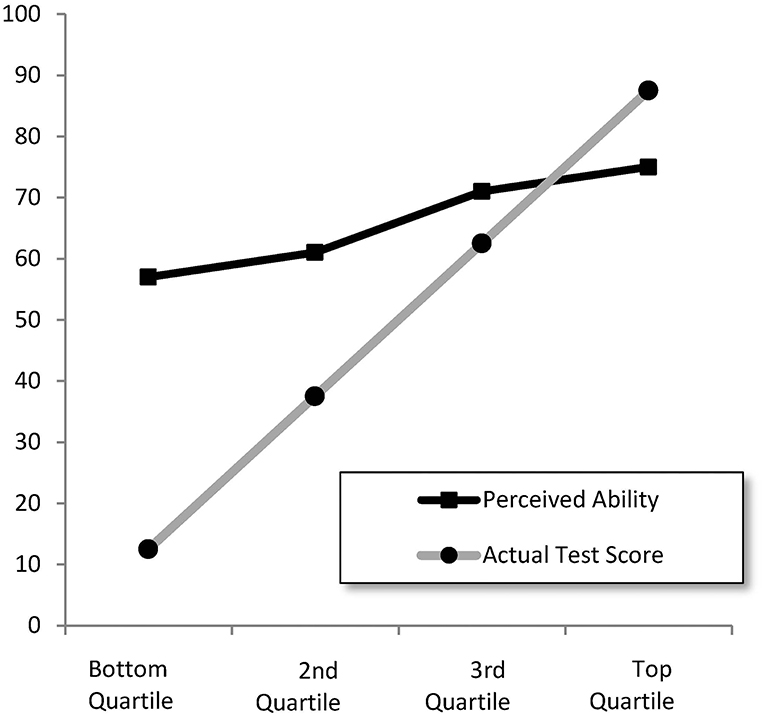Oh? When/where did that happen?
Ignoranus - when you’re both wrong and an asshole.
There have been alternative explanations for years; this summarises them nicely, as well as detailing a new test:
A proxmire
I’d suggest a (n Emily) Litella.
See e.g.
https: // www.youtube.com/watch?v=fZLeaSWY37I
Those authors got way too wound up in statistics, ignoring the vast amount of real-world data verifying the Dunning-Kruger effect.
In other words, they thought their methodology was better than it actually was?
While I do appreciate the cite (seriously), I don’t believe “hey, we don’t believe the effect is real and can kinda replicate that effect with a statistical model” qualifies as debunking…
‘Debunked’ is one of those colourful terms used by the media that can mean anything. I suppose I should have tried to do better.
It would be more accurate to say that there are a lot of popular misconceptions around the effect, well summed up in this graphic, which is pure bullshit:
What it actually looks like is this:
Almost everyone overestimates their ability (estimates are shifted strongly upwards on the chart vs real scores) and everyone thinks they are more average than in reality (the line of estimates is far flatter than the actual scores). It’s true that the bottom quartile’s estimates are furthest from reality, but not because they are uniquely bad at assessing their ability. There’s no magic point where you have enough knowledge and these effects cease to apply: you can see the 2nd quartile is also quite far off in their estimates, and the 3rd is closest more-or-less by coincidence. There is no ‘peak of Mount Stupid’.
These effects are unusually strong here, since it’s a chart of ability to recognise humour, something we don’t get much feedback on that would allow for accurate self-assessment. So it’s not surprising there was a strong tendency for people to guess they’d be slightly above average.
The popular misunderstanding of Dunning-Kruger continues to circulate because it allows people to feel superior to (often hypothetical) others, and because it makes a good insult.
That’s exactly what Dunning-Kruger is, though; the worse you are at x, the better you think you are at it. I don’t remember any additional frippery to the claims (like some peak of mount stupid).
And the reason people latch onto it is that for most people, it is directly applicable and viewable in their own lives…
Not really. The worse you are at it, the more exagerated or unrealistic your opinion.
From that data, the lowest quartile thinks they are worse than the second quartile thinks they are. There is no mountain of stupid.
But yes, the lowest quartile is more unrealistic / optimistic about their ability relative to their actual ability than the second quartile is.
No need to overthink it.
Exaltation of stupidity on social media correlates highly with lack of critical thinking capacity and venomous contempt for and hatred of experts.

